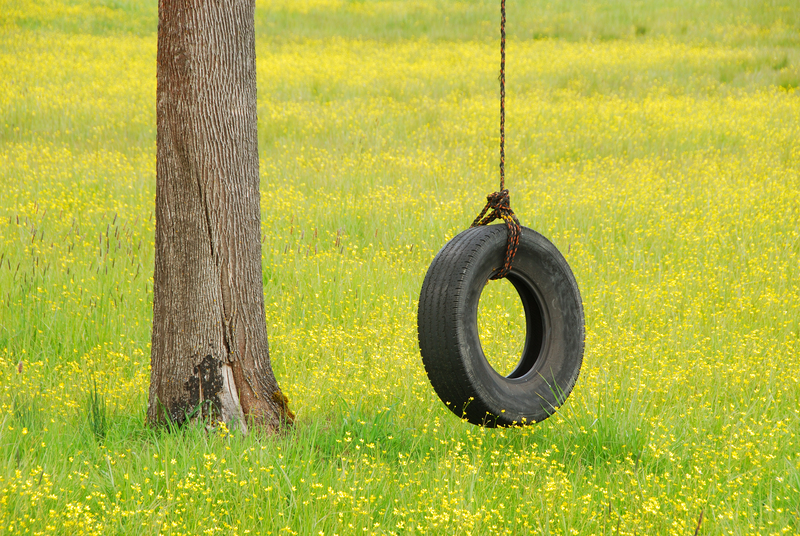Smart Tips for Boosting Your Recycling Practices at Home
Recycling at home is much more than a trendy phrase; it's a critical practice that impacts both our local environments and the planet as a whole. Mastering recycling techniques at home can seem overwhelming at first, but with smart strategies and actionable tips, anyone can create lasting green habits. Whether you're just getting started or looking to enhance your eco-friendly lifestyle, this comprehensive guide offers everything you need to know about maximizing home recycling.
Why Enhancing Your Home Recycling Practices Matters
Every year, millions of tons of recyclable materials end up in landfills, often due to improper sorting or lack of knowledge about recycling methods at home. By integrating smarter recycling practices into your daily routine, you do your part to:
- Decrease landfill waste
- Conserve natural resources
- Reduce greenhouse gas emissions
- Support the circular economy
- Save energy and money
When you boost your recycling efforts, you not only help the environment but also contribute to a cleaner, more sustainable household.

Understanding the Basics: What Can & Can't Be Recycled
Before diving into advanced recycling techniques, it's important to understand what you can and cannot recycle at home. Programs vary from city to city, so always check local guidelines, but generally:
Commonly Recyclable Items
- Paper and cardboard (newspapers, magazines, packaging, office paper, etc.)
- Plastics labeled #1 or #2 (like water bottles and milk jugs)
- Metals (aluminum cans, tin cans, foil)
- Glass bottles and jars (clear, green, or brown glass)
- Some rigid plastics (check local codes for specifics)
Items to Avoid Placing in Your Blue Bin
- Plastic bags and film wrap (take these to designated drop-off centers)
- Greasy pizza boxes and food-soiled cardboard
- Styrofoam products
- Electronics, batteries, or lightbulbs (require specialty recycling)
- Hazardous waste (paint, chemicals, pesticides)
Smart Sorting: The Foundation of Effective Home Recycling
One of the most common reasons for contaminated recycling loads is improper sorting. The following techniques can significantly improve your recycling at home:
1. Set Up a Home Recycling Station
Designate a specific area--like a corner in the kitchen or garage--for clean sorting bins. Use clearly labeled containers for paper, plastic, glass, and metal. This not only streamlines your household's recycling process but also encourages participation from every family member.
2. Rinse and Dry Materials
*Always* rinse food residue from cans, jars, and containers before recycling. Moisture and food particles can contaminate entire batches of recycling, resulting in more waste sent to landfill. Allow items to fully dry before tossing them in the bin.
3. Flatten and Squash Where Possible
Flatten cardboard boxes and squash plastic bottles or cartons to save space in your recycling bins. This also helps maximize the efficiency of collection and transportation, making your recycling routine even smarter.
Advanced Strategies to Optimize Your Home Recycling
1. Learn Your Local Rules
Local recycling centers have unique requirements. Stay updated on changes in accepted materials, collection schedules, or special instructions in your city by visiting your city waste management website or downloading their app. This reduces the risk of well-intentioned mistakes.
2. Compost Organic Waste
Composting diverts valuable organic materials from landfills, such as fruit and vegetable peels, coffee grounds, eggshells, and yard debris. Establish a compost bin in your backyard or under your sink and use the nutrient-rich results in your garden, reducing waste by up to 30%.
3. Invest in Smart Recycling Tools
Modern technology offers tools to make home recycling efforts more efficient. Invest in apps that scan barcodes for recycling information or smart bins that help with sorting. These tools provide instant feedback, minimize contamination, and streamline your eco-friendly habits.
4. Divert Special Waste Responsibly
Items like batteries, electronics, and light bulbs require special recycling. Collect them in a dedicated box and take them to local collection drives, e-waste events, or hardware stores offering these services.
Bring the Family On Board: Recycling as a Team Effort
- Educate your children: Explain why recycling matters and make a game of sorting items correctly.
- Post reminders: Hang up lists or posters above recycling bins as a quick reference for what is--and isn't--recyclable.
- Share successes: Keep track of what your family has saved from landfill, like pounds of plastic bottles or bags, to inspire continued commitment.
By treating recycling as a group effort, you set a lifelong example and foster a culture of environmental responsibility within your household.
Reduce Contamination: The Key to Recycling Success
Contaminated recycling loads are often sent straight to landfill. Implement these bold yet simple steps to protect the quality of your home recycling:
- Never bag recyclables: Loose materials are best for sorting machinery.
- Avoid mixing non-recyclables (like greasy food containers or loose plastic bags) in your bins.
- Don't "wishcycle": When in doubt, leave it out or check community guidelines.
Creative Ways to Reduce, Reuse, and Extend Recycling Beyond the Blue Bin
Smart recycling practices at home involve more than just sorting your household waste. Get creative to further reduce your impact:
- Reuse containers and jars for storage, DIY projects, or organizing small household items.
- Repurpose old textiles into cleaning rags, pet bedding, or arts and crafts.
- Upcycle packaging--transform egg cartons, cardboard tubes, and bottles into kids' crafts, planters, or organizers.
- Host swap events with friends or neighbors to give new life to old clothes, toys, and tools rather than simply throwing them away.
These resourceful habits not only stretch the life of everyday items, but also keep clutter to a minimum and encourage a sustainable mindset throughout your home.
Smart Shopping: Buy with Recycling in Mind
Make your recycling routine even more effective by adjusting your shopping habits:
- Choose products in recyclable packaging--opt for glass, metal, or easily recyclable plastics
- Avoid single-use plastics when possible
- Bring reusable shopping bags, produce bags, and containers
- Purchase bulk items to cut down on packaging
- Support brands with take-back or recycling programs
As a consumer, your purchasing decisions drive demand for more sustainable products and push industries to improve packaging and recycling solutions.
Stay Informed and Inspired
Recycling guidelines, accepted materials, and global best practices continue to evolve. Take these steps to keep your home recycling eco-smart:
- Follow local recycling programs and environmental nonprofits on social media for updates and educational resources.
- Subscribe to eco-friendly blogs or newsletters.
- Join neighborhood "green teams" or community clean-up projects.

Overcoming Common Challenges in Home Recycling
*"What if I don't have curbside recycling?"* Many communities offer drop-off centers or special collection events. Research local resources or organize neighborhood carpooling to transport materials if bins aren't provided.
*"I live in a small space; where can I store recyclables?"* Try stacking slim bins vertically, using under-sink cabinets, or using collapsible bags that can tuck away when not in use.
*"No space for a compost bin?"* Indoor options like bokashi bins and countertop composters are increasingly accessible even for apartment dwellers.
Conclusion: Take the Next Step Toward Greener Living
Integrating smart, effective recycling practices into your household is one of the most impactful steps for a sustainable future. By understanding the basics, implementing efficient sorting systems, thinking creatively about reuse, and staying educated about changing regulations, you'll not only reduce your home's environmental footprint but also inspire those around you.
Start today--every small action adds up. Remember, boosting your home recycling efforts isn't just about the environment; it's about improving your community, reducing waste, and living more responsibly for generations to come.